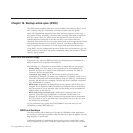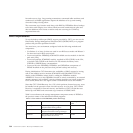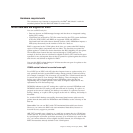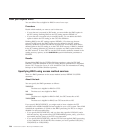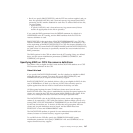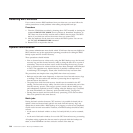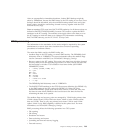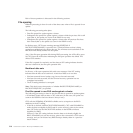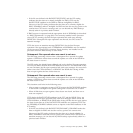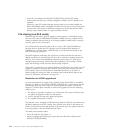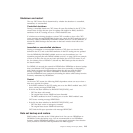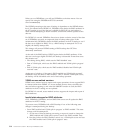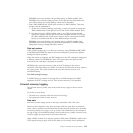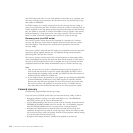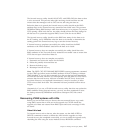Each of these operations is discussed in the following sections.
File opening
Different processing is done for each of the three cases when a file is opened for an
update.
The following processing takes place:
v First file opened for update against a cluster
v Subsequent file opened for update against a cluster while the previous file is still
open (that is, the update use count in the DSNB is not zero)
v Subsequent file opened for update against a cluster after all previous files have
been closed (that is, the update use count in the DSNB is zero)
In all three cases, CICS issues warning message DFHFC5812 if
BACKUPTYPE(DYNAMIC) is specified for a VSAM AIX data set that is being
opened as a standalone base cluster data set. The AIX data set must default to the
BACKUPTYPE already defined for the sphere.
Also, if the file-open operation fails during BWO processing, the ACB will be open.
So CICS closes the ACB before indicating the file-open operation has failed. This
affects CICS statistics.
If the file is opened for read-only, and the data set ICF catalog indicates that the
data set is back-level, the file-open operation fails.
Back-level data sets
In all cases, a file-open operation fails with error messages if the ICF catalog
indicates that the data set is back-level. A back-level data set is one that:
v Has been restored from a backup copy, but not forward recovered
v Has been forward recovered, but the forward recovery operation has not
completed successfully
v The ICF catalog indicates is corrupted
Note: This check occurs irrespective of whether BACKUPTYPE(DYNAMIC) or
BACKUPTYPE(STATIC) is specified.
First file opened in non-RLS mode against a cluster
The following processing is done for the first file that is opened for update against
a VSAM base cluster data set after a CICS cold start. (In this case, the update use
count in the DSNB for the base cluster is always zero.)
CICS calls the DFSMSdfp IGWABWO callable service to inquire on the BWO
attributes in the ICF catalog.
v If the file is defined with BACKUPTYPE(DYNAMIC), CICS calls IGWABWO to
make the data set eligible for BWO and to set the recovery point to the current
time. CICS also sets the BACKUPTYPE attribute in the DSNB to indicate
eligibility for BWO.
However, if the ICF catalog indicates that the data set is already eligible for
BWO, IGWABWO just sets the recovery point to the current time. CICS issues a
message, and you can discard any BWO backups already taken in a previous
batch window.
210 CICS TS for z/OS 4.1: Recovery and Restart Guide




